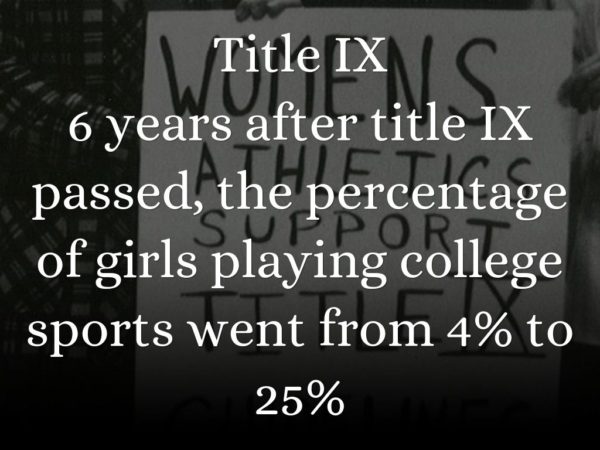

WASHINGTON — Continuing its efforts to ensure equal access to education free from discrimination, today the U.S. Department of Education released its proposal on improving schools’ responses to sexual harassment and assault. The proposed regulation under Title IX, the federal civil rights law that prohibits discrimination on the basis of sex in education programs or activities that receive federal funding, was developed after more than a year of research, deliberation, and gathering input from students, advocates, school administrators, Title IX coordinators, and other stakeholders.
“Throughout this process, my focus was, is, and always will be on ensuring that every student can learn in a safe and nurturing environment,” said U.S. Secretary of Education Betsy DeVos. “That starts with having clear policies and fair processes that every student can rely on. Every survivor of sexual violence must be taken seriously, and every student accused of sexual misconduct must know that guilt is not predetermined. We can, and must, condemn sexual violence and punish those who perpetrate it, while ensuring a fair grievance process. Those are not mutually exclusive ideas. They are the very essence of how Americans understand justice to function.”
The Department’s proposed rule takes the important and historic step of defining sexual harassment under Title IX and what it means for a student to report it, requires schools to respond meaningfully to every report of sexual harassment, and ensures that due process protections are in place for all students.
The Department’s proposed rule seeks to ensure that all schools clearly understand their legal obligations under Title IX and that all students clearly understand their options and rights.
Key provisions
- The proposed rule would require schools to respond meaningfully to every known report of sexual harassment and to investigate every formal complaint.
- The proposed rule highlights the importance of supportive measures designed to preserve or restore a student’s access to the school’s education program or activity, with or without a formal complaint. Supportive measures may include the following:
- Academic course adjustments
- Counseling
- No-contact orders
- Dorm room reassignments
- Leaves of absence
- Class schedule changes
- Where there has been a finding of responsibility, the proposed rule would require remedies for the survivor to restore or preserve access to the school’s education program or activity.
- The proposed rule would require schools to apply basic due process protections for students, including a presumption of innocence throughout the grievance process; written notice of allegations and an equal opportunity to review all evidence collected; and the right to cross- examination, subject to “rape shield” protections.
- Colleges and universities would be required to hold a live hearing where cross-examination would be conducted through the parties’ advisors. Personal confrontation between the complainant and respondent would not be permitted.
- To promote impartial decisions, schools would not be allowed to use a “single investigator” or “investigator-only” model.
- Under the proposed rule, if a school chooses to offer an appeal, both parties can appeal.
- Consistent with U.S. Supreme Court Title IX cases, the proposed rule defines sexual harassment as unwelcome conduct on the basis of sex that is so severe, pervasive, and objectively offensive that it effectively denies a person equal access to the school’s education program or activity.
- The proposed rule adopts the Clery Act definition of sexual assault and includes it in the definition of sexual harassment under Title IX.
“It is our goal with this proposed rule to ensure that Title IX grievance proceedings become more transparent, consistent, and reliable in their processes and outcomes,” said Secretary DeVos. “Far too many students have been forced to go to court to ensure their rights are protected because the Department has not set out legally binding rules that hold schools accountable for responding to allegations of sexual harassment in a supportive, fair manner. By following proper legal procedures and receiving input on our proposed rule, we will ultimately have a final regulation that ensures that Title IX protects all students.”
The Department’s proposed Title IX rule will be open for public comment for 60 days from the date of publication in the Federal Register.
To view the Department’s one page summary of the proposed Title IX rule, click here.
To take a deeper dive and review the proposed rule’s section-by-section summary, click here.
To view the proposed rule in its entirety, click here.
Source: Department of Education
more recommended stories
 Fentanyl Seizures at Border Continue to Spike, Making San Diego a National Epicenter for Fentanyl Trafficking
Fentanyl Seizures at Border Continue to Spike, Making San Diego a National Epicenter for Fentanyl TraffickingFentanyl Seizures at Border Continue to.
 Utah Man Sentenced for Hate Crime Attack of Three Men
Utah Man Sentenced for Hate Crime Attack of Three MenTuesday, August 8, 2023 A.
 Green Energy Company Biden Hosted At White House Files For Bankruptcy
Green Energy Company Biden Hosted At White House Files For BankruptcyAug 7 (Reuters) – Electric-vehicle parts.
 Former ABC News Reporter Who “Debunked” Pizzagate Pleads Guilty of Possessing Child pδrn
Former ABC News Reporter Who “Debunked” Pizzagate Pleads Guilty of Possessing Child pδrnFriday, July 21, 2023 A former.
 Six Harvard Medical School and an Arkansas mortuary Charged With Trafficking In Stolen Human Remains
Six Harvard Medical School and an Arkansas mortuary Charged With Trafficking In Stolen Human RemainsSCRANTON – The United States.
 Over 300 People Facing Federal Charges For Crimes Committed During Nationwide Demonstrations
Over 300 People Facing Federal Charges For Crimes Committed During Nationwide DemonstrationsThe Department of Justice announced that.
